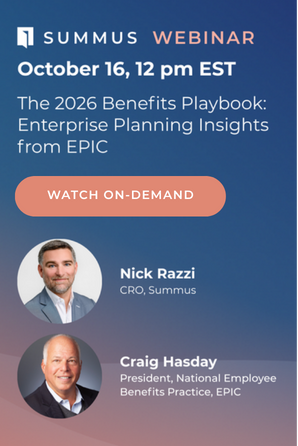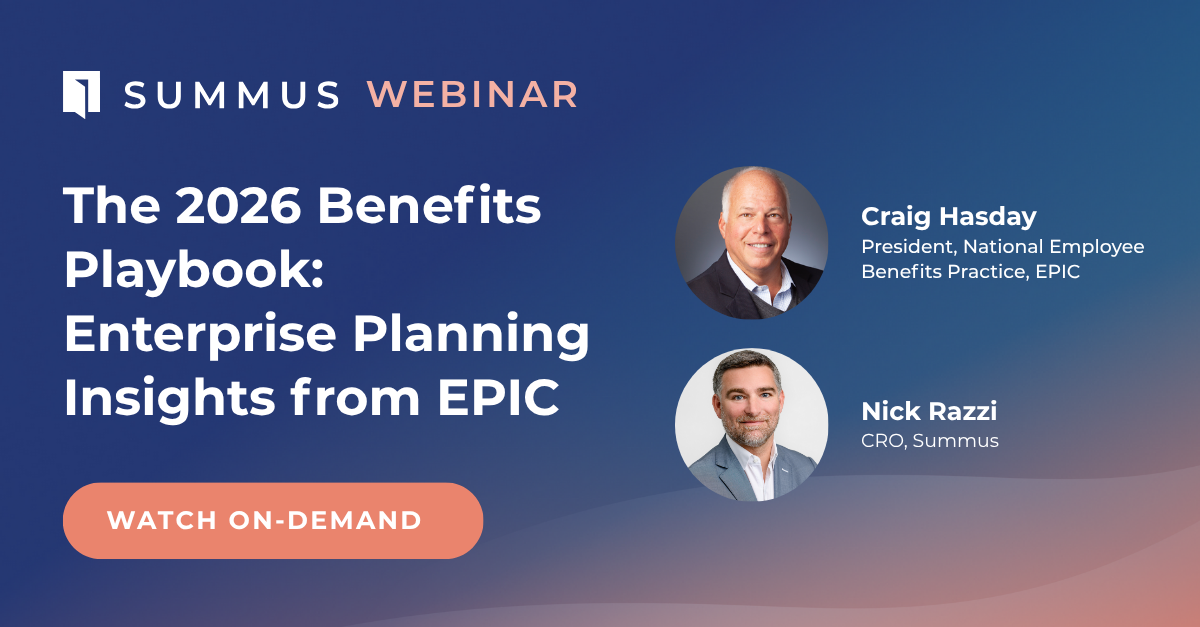For HR and benefits leaders, managing workforce health has never been more critical or complex. Chronic and complex conditions are among the biggest drivers of healthcare spend and organizational disruption, yet most employer strategies aren’t built to solve them.
From cancer and cardiovascular disease to musculoskeletal issues and autoimmune disorders, these conditions touch millions of lives and impact every level of business—from rising claims and absenteeism to declining productivity and employee morale.
The real challenge? Traditional benefits models often treat these problems in silos, leading to fragmented care, delayed treatment, and escalating costs. Forward-thinking employers are beginning to change this narrative.
The Toll of Chronic and Complex Conditions
In the U.S., chronic and complex conditions account for nearly 90% of total healthcare spending.1 These are long-term, often multi-system diseases that require careful, coordinated care across specialties. And when that coordination is missing, the consequences are costly.
- High Medical Costs: Long-term treatment, advanced imaging, repeated specialist visits, and sometimes unnecessary surgeries all drive costs upward.
- Productivity Losses: Beyond the financial strain, these conditions contribute to both absenteeism and modified presenteeism, e.g., when employees show up but can’t fully perform due to ongoing health challenges.
- Emotional Impact: Navigating a serious diagnosis or chronic condition without trusted support can lead to stress, disengagement, and even attrition.
The Fragmentation Problem
Despite good intentions and generous benefits, many employees still struggle to find and access quality care. Why?
Most employer-sponsored solutions address only a slice of the problem: a diabetes app here, an MSK telehealth vendor there. However, chronic conditions don’t operate in neat categories. One employee might be managing diabetes, depression, and joint pain simultaneously—requiring a more integrated, whole-person approach.
The result is a fragmented member experience, where employees bounce between providers, search for answers, and often receive conflicting guidance. Meanwhile, employers watch costs rise and outcomes stagnate.
Are you managing too many condition-specific point solutions? This guide is for you.
Why Point Solutions Fall Short
Point solutions can add value but, when deployed in isolation, they rarely solve the larger issue. They often lack:
- Continuity of Care: Employees need sustained support, not one-off transactions.
- Clinical Integration: There’s little alignment between these tools and the broader healthcare ecosystem, including in-network providers.
- Trusted Expertise: Algorithms and chatbots don’t replace conversations with top doctors who can guide critical decisions.
Employers need a better way to support employees through complex care journeys and should seek one that improves outcomes, reduces unnecessary costs, and gives HR teams a scalable, effective solution.
The Summus Solution: Whole-Journey Clinical Navigation
Summus is transforming how employers manage chronic and complex conditions. Our platform connects employees and their families to top doctors across any condition—quickly, virtually, and with personalized guidance that spans the full journey.
Here’s how we do it differently:
- Doctor-led Clinical Navigation
Employees connect with top-tier doctors virtually and quickly—getting expert guidance to validate diagnoses, assess options, and plan next steps with confidence. - Fast Access to Top Specialists
Instead of waiting weeks for an appointment, Summus members connect with world-class physicians in days, not weeks or months. - Smarter, More Efficient Care Decisions
Summus helps employees avoid unnecessary procedures, imaging, and referrals by aligning care decisions to evidence-based best practices.
- Purpose-Built Programs for Your Workforce’s Biggest Needs
To address the most common and costly chronic conditions, we’ve designed end-to-end condition programs that meet employees where they are, while helping employers control cost and complexity.
Build a More Resilient, Productive Workforce
When employees feel supported in their health journeys, they’re more engaged, more productive, and more likely to stay. For HR and Benefits leaders, proactive chronic care support isn’t just a benefit, it’s a competitive advantage.
Visit our Complex and Chronic Conditions page to learn how Summus helps employers manage costs and support employee health more effectively.
For more information about specific programs, visit:





